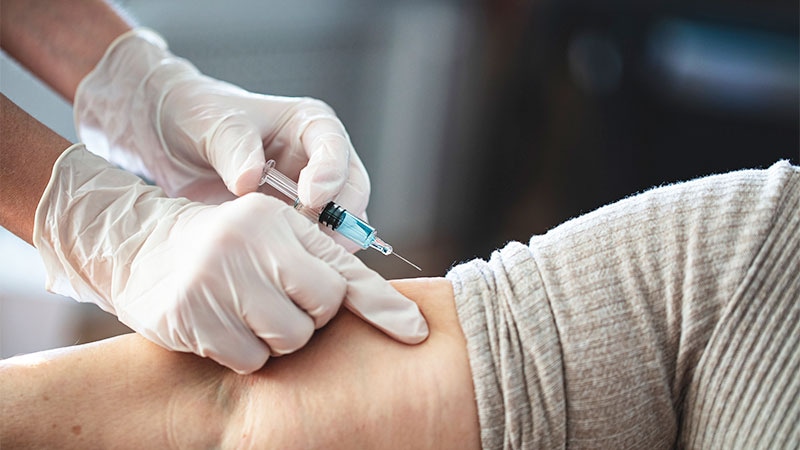Takeaway
- Dupilumab is associated with improved signs, symptoms, and/or QoL in adolescent patients with moderate-to-severe atopic dermatitis (AD), according to post hoc analysis of the LIBERTY AD ADOL randomised controlled trial.
Why this matters
- This study demonstrated benefits of dupilumab using a comprehensive evaluation combining clinician- and patient-reported outcome measures.
Key results
- Dupilumab was associated with a higher rate of clinically meaningful improvements in AD signs, symptoms, and/or QoL compared with placebo:
- Q2W dosing: 80.5% vs 23.5% (P<.0001); and
- Q4W: 63.1% vs 23.5% (P<.0001).
- Results were similar vs placebo in patients with Investigator’s Global Assessment score >1 at week 16:
- Q2W: 74.2% vs 21.7% (P<.0001); and
- Q4W: 55.1% vs 21.7% (P<.0001).
Study design
- 251 patients ages ≥12 to <18 years with moderate-to-severe AD were randomly allocated to receive dupilumab 300 mg Q4W (n=84), dupilumab 200 or 300 mg Q2W (n=82), or placebo (n=85) and analysed for clinically meaningful improvements in AD signs, symptoms, and/or QoL at week 16 (improvement of ≥50% in Eczema Area and Severity Index, ≥3 points in Peak Pruritus Numerical Rating Scale, or ≥6 points in the Children’s Dermatology Life Quality Index).
- Funding: Sanofi; Regeneron Pharmaceuticals, Inc.
Limitations
- Not prespecified outcomes.
References
References

